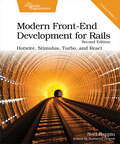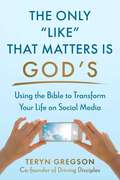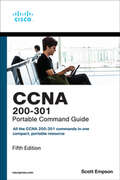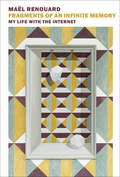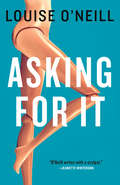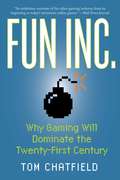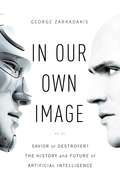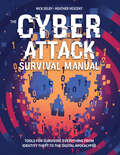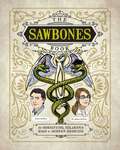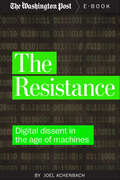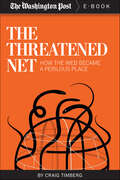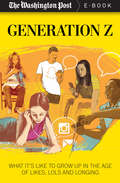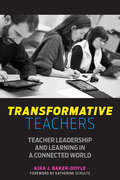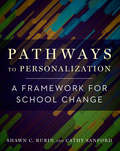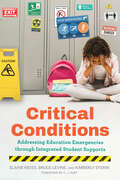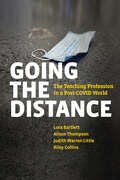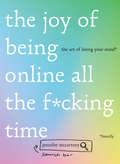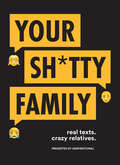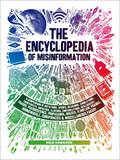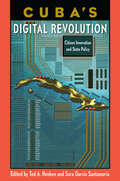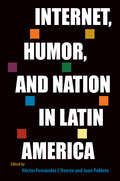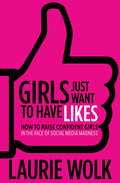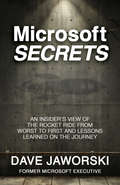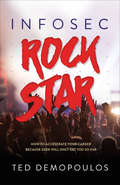- Table View
- List View
Modern Front-End Development for Rails
by Noel RappinImprove the user experience for your Rails app with rich, engaging client-side interactions. Learn to use the Rails 7 tools and simplify the complex JavaScript ecosystem. It's easier than ever to build user interactions with Hotwire, Turbo, and Stimulus. You can add great front-end flair without much extra complication. Use React to build a more complex set of client-side features. Structure your code for different levels of client-side needs with these powerful options. Add to your toolkit today! It's hard to have a Rails application without integrating some client-side logic. But client-side coding tools, and the Rails tools for integrating with them, all change continuously. Rails 7 simplifies client-side integration with the Hotwire gem. It's a great way to build client interaction with server-side HTML and a small amount of JavaScript. In the latest edition of this book, learn how to use Rails 7 and its front-end bundling tools to build rich front-end logic into your Rails applications. The job is even easier with Stimulus, a library that brings Rails conventions to JavaScript tools. And you can also add in React, a larger framework that automatically updates the browser when your data changes. Learn the basics of Turbo, Stimulus, and TypeScript, and add pizazz to your application. Structure your web application to best manage your state. Learn how to interact with data on the server while still keeping the user experience interactive. Use the type system in TypeScript to expand on JavaScript and help prevent error conditions. Debug and test your front-end application with tools specific to each framework. There are a lot of ways to do client-side coding, and Rails is here to help. What You Need: This book requires Ruby on Rails 7.0 or later, React 17.0.0 or later. Other dependencies will be added by Rails.
The Only Like That Matters Is God's: Using the Bible to Transform Your Life on Social Media
by Teryn GregsonDoes consuming the scroll leave you feeling empty? Escape the shackles of social media and turn to Christ to set you free. By using the Bible as your handbook, you can glorify God through how you present yourself, consume, and operate on social media, regardless of your social media status. Former sports broadcaster Teryn Gregson, who faced public persecution for her faith, approaches the hard to discuss depths of the cultural lies perpetuated on social media. By studying, through scripture, how God delivered the Israelites when they fell into the trap of comparison, or how Jesus overcame cancel culture by rising from the dead three days later. We too can learn to defeat that which consumes us, with the help of the Holy Spirit. In addition to chapter devotionals to dive deeper individually or as a group, the book also faces, head-on, promiscuity masked as Instagram modeling, how that affects our young men & women and what it looks like to truly lay it all on the line for your faith, aside from the picture-perfect profiles online. Each chapter concludes with devotionals that readers can fill out and use as supplemental learning for bible study groups and everyday life. Adding an interactive element to the book, the devotionals utilize various tools to engage readers, including: Scripture studiesLife-Application ChallengesDigital Detox ExercisesScreentime RecommendationsPrayersAnd more!We can transform our lives on social media when we find joy in truly knowing the only &“like&” that matters is God&’s. His &“like&” is all we need. We don&’t deserve it, we can&’t earn it. He gives us all His &“likes&” for free.
CCNA 200-301 Portable Command Guide
by Scott EmpsonCCNA 200-301 Portable Command Guide is filled with valuable, easy-to-access information–and it’s portable enough to use whether you’re in the server room or the equipment closet. <P><P> The guide summarizes all CCNA certification-level Cisco IOS Software commands, keywords, command arguments, and associated prompts, providing you with tips and examples of how to apply the commands to real-world scenarios. Throughout, configuration examples give you a better understanding of how these commands are used in simple network designs. <P><P> This book has been completely updated to cover topics in the new 200-301 exam. Use this quick reference resource to help you memorize commands and concepts as you work to pass the CCNA certification exam. Coverage includes
Fragments of an Infinite Memory: My Life with the Internet
by Mael RenouardA deeply informed, yet playful and ironic look at how the internet has changed human experience, memory, and our sense of self, and that belongs on the shelf with the best writings of Roland Barthes and Jean Baudrillard.&“One day, as I was daydreaming on the boulevard Beaumarchais, I had the idea—it came and went in a flash, almost in spite of myself—of Googling to find out what I&’d been up to and where I&’d been two evenings before, at five o&’clock, since I couldn&’t remember on my own.&” So begins Maël Renouard&’s Fragments of an Infinite Memory, a provocative and elegant inquiry into life in a wireless world. Renouard is old enough to remember life before the internet but young enough to have fully accommodated his life to the internet and the gadgets that support it. Here this young philosopher, novelist, and translator tries out a series of conjectures on how human experience, especially the sense of self, is being changed by our continual engagement with a memory that is impersonal and effectively boundless. Renouard has written a book that is rigorously impressionistic, deeply informed historically and culturally, but is also playful, ironic, personal, and formally adventurous, a book that withstands comparison to the best of Roland Barthes and Jean Baudrillard.
Asking For It
by Louise O'NeillEmma O'Donovan is eighteen, beautiful, and fearless. It's the beginning of summer in a quiet Irish town and tonight she and her friends have dressed to impress. Everyone is at the party, and all eyes are on Emma. The next morning Emma's parents discover her collapsed on the doorstop of their home, unconscious. She is disheveled, bleeding, and disoriented, looking as if she had been dumped there.To her distress, Emma can't remember what happened the night before. All she knows is that none of her friends will respond to her texts. At school, people turn away from her and whisper under their breath. Her mind may be a blank as far as the events of the previous evening, but someone has posted photos of it on Facebook under a fake account, "Easy Emma"--photos she will never be able to forget.As the photos go viral and a criminal investigation is launched, the community is thrown into tumult. The media descends, neighbors chose sides, and people from all over the world want to talk about her story. Everyone has something to say about Emma. Asking For It is a powerful story about the devastating effects of rape and public shaming, told through the awful experience of a young woman whose life is changed forever by an act of violence.
Fun Inc.: Why Gaming Will Dominate the Twenty-First Century
by Tom Chatfield"An ambitious overview of the videogaming industry, from its beginning to today's immersive online games."--Wall Street Journal Despite the recession, video games continue to break records--and command unprecedented amounts of media coverage. The U.S. is the world's biggest video games market and manufacturer, with a market now worth over $20 billion annually in software and hardware sales--more than quadruple its size in the mid 1990s. World of Warcraft now boasts over 11 million players worldwide, and over $1 billion per year in revenues. Gaming is flourishing as a career and a creative industry as well. 254 U.S. colleges and universities in 37 states now offer courses and degrees in computer and video game design, programming and art. Video games are increasingly for everyone: 68% of American households now play computer or video games, while the average game player is 35 years old and has been playing games for twelve years. Against the popular image, too, 43% of online U.S. game players are female. The U.S. military alone now spends around $6 billion a year on virtual and simulated training programs, based around video games and virtual worlds. The budgets for developing the biggest games can now top the $100 million mark and are snapping up some of the biggest names in film--from Stephen Spielberg to Peter Jackson.
In Our Own Image: Savior or Destroyer? The History and Future of Artificial Intelligence
by George ZarkadakisA timely and important book that explores the history and future, as well as the societal and ethical implications, of Artificial Intelligence as we approach the cusp of a fourth industrial revolution Zarkadakis explores one of humankind's oldest love-hate relationships—our ties with artificial intelligence, or AI. He traces AI's origins in ancient myth, through literary classics like Frankenstein, to today's sci-fi blockbusters, arguing that a fascination with AI is hardwired into the human psyche. He explains AI's history, technology, and potential; its manifestations in intelligent machines; its connections to neurology and consciousness, as well as—perhaps most tellingly—what AI reveals about us as human beings. In Our Own Image argues that we are on the brink of a fourth industrial revolution—poised to enter the age of Artificial Intelligence as science fiction becomes science fact. Ultimately, Zarkadakis observes, the fate of AI has profound implications for the future of science and humanity itself.
The Cyber Attack Survival Manual: Tools for Surviving Everything from Identity Theft to the Digital Apocalypse (Survival Ser.)
by Nick Selby Heather VescentCybersecurity experts present an accessible, informative, and fully illustrated guide to protecting yourself, your assets, and your loved ones online. As we live more of our lives online, we need to be more aware of the risks we face—and what we can do to protect ourselves. We all know that our identities can be stolen, and that intellectual property can be copied and sold. But even scarier things are now possible. Vehicle systems can be hacked, our power grid can be sabotaged, and terrorists are getting more sophisticated by the day. In The Cyber Attack Survival Manual, you learn hands-on tips and techniques for fighting back. Author Nick Selby, a police detective who specializes in busting cybercriminals, gathers a consortium of experts in digital currency, crimeware, intelligence, and more in order to share the latest and best security techniques. The Cyber Attack Survival Manual covers: Everyday security: How to keep your identity from being stolen, protect your kids, protect your cards, and much more. Big Stories: Silk Road, Ashley Madison, FBI vs. Apple, WikiLeaks, Bitcoin, and what they mean to individuals and society at large. Global issues: the NSA, how hackers can crash your car, and looming threats from China and elsewhere.
The Sawbones Book: The Hilarious, Horrifying Road to Modern Medicine
by Justin McElroy Dr. Sydnee McElroyEvery week, Dr. Sydnee McElroy and her husband Justin amaze, amuse, and gross out (depending on the week) hundreds of thousands of avid listeners to their podcast, Sawbones. Consistently rated a top podcast on iTunes, with over 15 million total downloads, this rollicking journey through thousands of years of medical mishaps and miracles is not only hilarious but downright educational. While you may never even consider applying boiled weasel to your forehead (once the height of sophistication when it came to headache cures), you will almost certainly face some questionable medical advice in your everyday life (we&’re looking at you, raw water!) and be better able to figure out if this is a miracle cure (it&’s not) or a scam. Table of Contents: Part 1: The Unnerving The Resurrection Men Opium An Electrifying Experience Weight Loss Charcoal The Black Plague Pliny the Elder Erectile Dysfunction Spontaneous Combustion The Doctor Is In Trepanation Part II: The Gross Mummy Medicine Mercury The Guthole Bromance A Piece of Your Mind The Unkillable Phineas Gage Phrenology The Man Who Drank Poop Robert Liston Urine Luck! Radium Humorism The Doctor Is In The Straight Poop Part III: The Weird The Dancing Plague Curtis Howe Springer Smoke &’Em if You Got ëEm A Titanic Case of Nausea Arsenic Paracelsus Honey Self-Experimentation Homeopathy The Doctor Is In Part IV: The Awesome The Poison Squad Bloodletting Death by Chocolate John Harvey Kellogg Parrot Fever Detox Vinegar Polio Vaccine The Doctor Is In.
The Resistance: Digital dissent in the age of machines
by Joel Achenbach The Washington PostWashington Post reporter Joel Achenbach explores our relationship with technology—frequently beneficial, occasionally adversarial, and rapidly changing in a world growing more connected by the minute. In the second decade of this new millennium, we are more connected than we have ever been, and digital utopians speak of the new wonders ahead—artificial intelligence and augmented intelligence, a merger of humans and machines, and a coming era of transhumanism that we cannot possibly imagine. But there are dissenters. They see the rise of a surveillance state. They see personal data turned into a commodity. They see profits swirling to a few huge corporations. They see basic human interactions impaired by gadgetry. The most apocalyptic thinkers fear that machines will soon escape our control. They believe artificial intelligence will be our most catastrophic invention. These people do not form a coherent movement. But if they share a common message, it's that technology should serve humans and not the other way around. Joel Achenbach explores his own relationship with the digital revolution, as well as its future, in this eye-opening, intelligent, and entertaining look at how we connect today.
The Threatened Net: How the Web Became a Perilous Place
by Craig Timberg The Washington PostThe Internet can appear to be elegantly designed, but as The Washington Post’s Craig Timberg demonstrated in his illuminating series “Net of Insecurity,” the network is much more an assemblage of kludges—more Frankenstein than Ferrari—that endure because they work, or at least work well enough. The defects hackers use often are well-known and ancient in technological terms, surviving only because of an industry-wide penchant for patching over problems rather than replacing the rot – and because Washington largely shrugged. At critical moments in the development of the Internet, some of the country’s smartest minds warned leaders at the Pentagon and in Congress, but were largely ignored. The consequences now play out across cyberspace every second of every day, as hackers exploit old, poorly protected systems to scam, steal, and spy on a scale never before possible. Today, hundreds of billions of dollars are spent on computer security and the danger posed by hackers seems to grow worse each year, threatening banks, retailers, government agencies, a Hollywood studio and, experts worry, critical mechanical systems in dams, power plants, and aircraft. Many have tried to write about the origins of the Internet. But never before has a writer so thoroughly elucidated the history of the security of the Internet—and why basic flaws in its design continue to leave this country wide open to digital threats.
Candidate Hillary: From Senator to Presidential Hopeful
by Beth J. Harpaz The Associated PressHillary is up in the polls! Hillary is down in the polls! She&’s a feminist and women love her; she&’s an enabler and women hate her. She&’s brilliant and hardworking; she&’s entitled and untrustworthy. Sounds like Hillary Rodham Clinton&’s 2016 or even 2008 presidential campaign, right? Well, go back even farther to the year 2000 to discover how every one of those phrases was uttered during Hillary&’s very first campaign when she made history as the only first lady to ever run for office. That groundbreaking bid for U.S. Senate in New York made headlines around the world, coming as it did on the heels of her husband&’s scandalous affair with a White House intern. Reporter Beth J. Harpaz was there, covering this political whirlwind for The Associated Press, and her book, "Candidate Hillary," previously published as "The Girls in the Van," revisits every key moment of the race. This funny, fascinating account puts you in the press van that followed Hillary from Buffalo to Brooklyn as she fought a cast of familiar characters, including New York&’s pugnacious Mayor Rudy Giuliani. It&’s filled with all the successes and missteps, the kind that plagued the assumed front-runner&’s 2008 campaign for the Democratic presidential nomination, which instead went to a young Senator from Illinois named Barack Obama. Now, updated with new perspectives from the author and an introduction by National Politics Reporter Lisa Lerer, "Candidate Hillary" offers a window into Hillary&’s vulnerabilities, strengths and the inner workings of the Clinton machine, all told with authority, humor and the benefit of hindsight.
Generation Z: What It's Like to Grow up in the Age of Likes, LOLs and Longing
by The Washington PostAn in-depth profile of the digital native generation from the Pulitzer Prize-winning newspaper. For the generation after Millennials, technology has been the only way of life since birth. These children are the first group to have their formative moments chronicled on Facebook, to grow up surrounded by the ubiquity of smartphones, and most important, to navigate a social landscape ruled by the internet. With this lifestyle comes a host of issues that prior generations never dealt with, including cyberbullying, alienation from peers with greater access to technology, and an increasing vulnerability to online sexual predators. This series of articles from the Washington Post delves into the everyday lives of American kids and teenagers. With its exploration of the unique pressures and complications of living an online life (and most of life online), this collection is a must-read for anyone who cares about the future of Generation Z.
Transformative Teachers: Teacher Leadership and Learning in a Connected World
by Kira J. Baker-DoyleTransformative Teachers offers an insightful look at the growing movement of civic-minded educators who are using twenty-first-century participatory practices and connected technologies to organize change from the ground up. Kira J. Baker-Doyle highlights the collaborative, grassroots tactics that activist teachers are implementing to transform their profession and pursue greater social justice and equity in education. The author provides a framework and practical suggestions for charting the path to transformative teacher leadership as well as suggestions for how others, including administrators and outside organizations, can support them. In addition, the book profiles fifteen transformative teachers who are changing the face of education, features three case studies of organizational allies (Edcamps, the Philadelphia Education Fund, and the Connected Learning Alliance), and includes insights from a wide range of educational leaders. A guide to the norms and practices of innovative educators, Transformative Teachers offers a clear and compelling vision of the potential for grassroots change in education.
Pathways to Personalization: A Framework for School Change
by Shawn C. Rubin Cathy SanfordPathways to Personalization offers an innovative five-step framework to help school leaders and teacher teams design and implement blended and personalized learning initiatives based on local needs and interests. The book draws on principles of improvement science and change management, as well as work in nearly five hundred classrooms, to help educators define their own rationale for personalized learning; it guides them as they establish small pilot initiatives, determine criteria for success, evaluate their efforts, and create a path for replication and scale. Filled with activities and templates for organizing information and student feedback, the book also includes many examples of how district leaders, school principals, and teachers have successfully navigated the change process to create more student-centered classrooms. Shifting a school or district to offer more personalized learning requires a great deal of commitment, passion, and energy, but it also demands a strategic process. Pathways to Personalization meets this need by providing a field-tested road map for educators seeking ways to meet the academic and emotional needs of all students, and to empower them to take charge of their own learning.
Critical Conditions: Addressing Education Emergencies Through Integrated Student Supports
by Elaine Weiss Bruce Levine Kimberly SterinA proactive, ground-level approach to student support that helps ameliorate the effects of socioeconomic challenges and improves outcomes for students, families, and communities
Going the Distance: The Teaching Profession in a Post-COVID World
by Lora Bartlett Judith Warren Little Alisun Thompson Riley CollinsAn unflinching yet ultimately hopeful appraisal of the workplace factors that determine career risk and resilience among K–12 teachers, informed by the lessons of the COVID-19 crisis
The Joy of Being Online All the F*cking Time (Literally): The Art Of Losing Your Mind (literally)
by Jennifer McCartneyFrom the author of The Joy of Leaving Your Sh*t All Over the Place, comes a defense of screen time. We’re inundated with advice on how to cut back on our screen time, and urged instead to embrace nature, human relationships, and being present in the moment. But has anyone actually considered those realities? They sound like a lot of work. In her new book, Jennifer McCartney gives thanks for phones, iPads, laptops, the menu tablets at Chili’s, and all screens everywhere. We can now follow a baby alpaca on a webcam, watch a viral video on TikTok, find an ex on Facebook, measure our pupillary distances, answer any question without engaging our brains—there’s so much to learn, with little to no effort. The Internet practically runs itself! We use it for work, for family, for research. We’re really, really good at being online! And that’s something to celebrate. With her usual balance of pithy wisdom, aptitude tests, and hilarious commentary, McCartney embraces our new reality. After all, as Descartes might have said, “I scroll, therefore I am.”
Your Sh*tty Family: Real Texts. Crazy Relatives.
by Uninspirational“A hysterical new collection of text exchanges from moms, dads, grandparents, and siblings that prove, well, relatives are shitty to one another.” —BroBibleYour Sh*tty Family contains all the hilarity, confusion, and frustration of a visit home without the expensive plane tickets, the tiny twin bed, or any of the misery of actually having to spend time with your family. This book, based on the popular Instagram account of the same name, features actual text-message conversations between various family members. Your Sh*tty Family presents screenshots of these conversations that are relatable to anyone who has ever taught their parents to text. Topics range from hilarious misunderstandings of slang, to children who over-share, to siblings who mercilessly make fun of each other, all organized into outrageous categories such as Momster, Dadvice, Group Chats, and more!
The Encyclopedia of Misinformation: A Compendium of Imitations, Spoofs, Delusions, Simulations, Counterfeits, Impostors, Illusions, Confabulations, Skullduggery, ... Conspiracies & Miscellaneous Fakery
by Rex Sorgatz“In an era of ‘alternative facts,’ Rex Sorgatz’s The Encyclopedia of Misinformation helps put things in perspective.” —Fast CompanyThis compendium of misinformation, deception, and self-delusion throughout history examines fakery in the context of science and advertising, humor and law, sports and video games, and beyond. Entries span eclectic topics: Artificial Intelligence, Auto-Tune, Chilean Sea Bass, Clickbait, Cognitive Dissonance, Cryptids, False Flag Operations, Gaslighting, Gerrymandering, Kayfabe, Laugh Tracks, Milli Vanilli, P.T. Barnum, Photoshopping, Potemkin Villages, Ponzi Schemes, Rachel Dolezal, Strategery, Truthiness, and the Uncanny Valley. From A to Z, this is the definitive guide to how we are tricked, and how we trick ourselves.“Occasional salty language and pop-culture references make this compendium of 300 short entries a delightful mix of high- and lowbrow.” —Booklist
Cuba’s Digital Revolution: Citizen Innovation and State Policy (Reframing Media, Technology, and Culture in Latin/o America)
by Ted A. Henken and Sara Garcia SantamariaA wide-ranging examination of the ways digital technologies are impacting Cuba’s Revolutionary project The triumph of the Cuban Revolution gave the Communist Party a monopoly over both politics and the mass media. However, with the subsequent global proliferation of new information and communication technologies, Cuban citizens have become active participants in the worldwide digital revolution. While the Cuban internet has long been characterized by censorship, high costs, slow speeds, and limited access, this volume argues that since 2013, technological developments have allowed for a fundamental reconfiguration of the cultural, economic, social, and political spheres of the Revolutionary project.The essays in this volume cover various transformations within this new digital revolution, examining both government-enabled paid public web access and creative workarounds that Cubans have designed to independently produce, distribute, and access digital content. Contributors trace how media ventures, entrepreneurship, online marketing, journalism, and cultural e-zines have been developing on the island alongside global technological and geopolitical changes.As Cuba continues to expand internet access and as citizens challenge state policies on the speed, breadth, and freedom of that access, Cuba’s Digital Revolution provides a fascinating example of the impact of technology in authoritarian states and transitional democracies. While the streets of Cuba may still belong to Castro’s Revolution, this volume argues that it is still unclear to whom Cuban cyberspace belongs. Contributors: Larry Press | Edel Lima Sarmiento | Olga Khrustaleva | Alexei Padilla Herrera | Eloy Viera Cañive | Marie Laure Geoffray | Ted A. Henken | Sara Garcia Santamaria | Anne Natvig | Carlos Manuel Rodríguez Arechavaleta | Mireya Márquez-Ramírez, Ph.D.| Abel Somohano Fernández | Rebecca Ogden | Jennifer Cearns | Walfrido Dorta | Paloma DuongA volume in the series Reframing Media, Technology, and Culture in Latin/o America, edited by Héctor Fernández L’Hoeste and Juan Carlos RodríguezPublication of the paperback edition made possible by a Sustaining the Humanities through the American Rescue Plan grant from the National Endowment for the Humanities.
Internet, Humor, and Nation in Latin America (Reframing Media, Technology, and Culture in Latin/o America)
by Juan Poblete Héctor Fernández L’HoesteHow online humor influences politics and culture in Latin America This volume is the first to provide a comprehensive Latin American perspective on the role of humor in the Spanish- and Portuguese-language internet, highlighting how the production and circulation of online humor influence the region’s relation to democracy and civil society and the production of meaning in everyday life. Several case studies consider memes, including discussions of political cartoons in Mexico and imagery that portrays the mismanagement of natural disasters in Puerto Rico. Essays on Brazil examine how memes are shared on WhatsApp by Jair Bolsonaro supporters and how the Instagram account Barbie Fascionista offers memes as political commentary. Other case studies consider video content, including the sketches of Argentinian comedian Guillermo Aquino, the short-form material of Chilean vlogger Germán Garmendia, and a satirical YouTube column created by journalists in Colombia. Contributors also offer new methodologies for studying the laughable on social media, including a model for analyzing fake Twitter accounts. Internet, Humor, and Nation in Latin America demonstrates that internet humor can generate novel means of public interaction with the political and cultural spheres and create greater expectations of governmental accountability and democratic participation. This volume shows the importance of paying serious attention to humorous digital content as part of contemporary culture.Contributors: Eva Paulina Bueno | Juan Poblete | Alberto Centeno-Pulido | Damián Fraticelli | Juan Carlos Rodríguez | Viktor Chagas | Paul Alonso | Ulisses Sawczuk da Silva | Héctor Fernández L'Hoeste | Alejandra Nallely Collado Campos | R. Sánchez-Rivera | Mélodine Sommier | Fábio Marques de Souza A volume in the series Reframing Media, Technology, and Culture in Latin/o America, edited by Héctor Fernández L’Hoeste and Juan Carlos Rodríguez Publication of this work made possible by a Sustaining the Humanities through the American Rescue Plan grant from the National Endowment for the Humanities.
Girls Just Want to Have Likes: How to Raise Confident Girls in the Face of Social Media Madness
by Laurie WolkAn educator and leadership coach teaches parents how to cut through daughters&’ addiction to social media and reclaim family connection. In today&’s age of social media, young girls are learning crucial life lessons from dubious mentors like the Kardashians and other Instagram &“celebrities.&” Many are so thoroughly addicted to social media they are uncomfortable communicating face to face. It&’s no wonder parents across the country are afraid for their daughters&’ self-esteem and ability to thrive in the real world. In Girls Just Want to Have Likes, educator and leadership coach Laurie Wolk offers smart advice on how parents can take control, communicate meaningfully with their children, and get back to raising confident capable young women. Laurie shows parents how to reclaim their roles as mentor and guide, helping their daughters unwind and decode the toxic messages social media broadcasts. By applying Laurie&’s methods, social media will start to fade into the background of your household, allowing family connection to take center stage—and letting your daughter shine.
Microsoft Secrets: An Insider’s View of the Rocket Ride from Worst to First and Lessons Learned on the Journey
by Dave JaworskiA great deal has been written about Steve Jobs and Apple. Not nearly as much has been produced about Bill Gates and Microsoft, especially in the ten-year period that Dave Jaworski was at Microsoft. Microsoft was the company that drove the hardest and built the fastest. He was there during this rapid rise to the top. Dave kept meticulous notes and took lots of photos and documented the risks taken, the dreams shared, the lessons learned, the hopes realized, and the mistakes made. Many of the issues at the time are similar to issues confronting leaders in business today. All can learn from Microsoft’s past. Dave also details several secrets—some only his family knows. Some of these secrets were known to only a handful of people within the company at a time when it went through its explosive growth period: like the secret recipe for Coca-Cola or Colonel Sanders’ chicken recipe, these secrets were literally changing the competitive landscape in the technology industry and were rewriting the business rules of the day. Understanding these secrets and the thinking behind them can provide strategic insights and advantages to professionals and their businesses. Better still, they can help them define their own secrets to accelerate them past competitors and over hurdles to success.
Infosec Rock Star: How to Accelerate Your Career Because Geek Will Only Get You So Far
by Ted DemopoulosHave you noticed that some people in infosec simply have more success than others, however they may define success? Some people are simply more listened too, more prominent, make more of a difference, have more flexibility with work, more freedom, choices of the best projects, and yes, make more money. They are not just lucky. They make their luck. The most successful are not necessarily the most technical, although technical or "geek" skills are essential. They are an absolute must, and we naturally build technical skills through experience. They are essential, but not for Rock Star level success. The most successful, the Infosec Rock Stars, have a slew of other equally valuable skills, ones most people never develop nor even understand. They include skills such as self direction, communication, business understanding, leadership, time management, project management, influence, negotiation, results orientation, and lots more . . . Infosec Rock Star will start you on your journey of mastering these skills and the journey of moving toward Rock Star status and all its benefits. Maybe you think you can’t be a Rock Star, but everyone can MOVE towards it and reap the benefits of vastly increased success. Remember, “Geek” will only get you so far . . .
